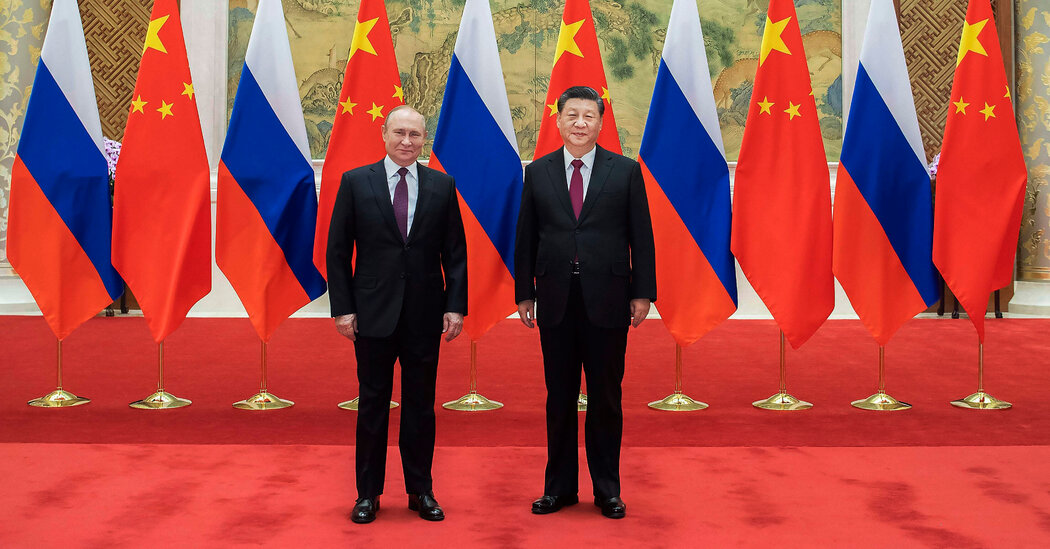
Mr. Xi and Mr. Putin have denounced the initiatives. They have long seen those two main strategic prongs of Washington — promotion of democracy abroad and the deployment or sharing of troops and military equipment — as enormous threats to their nations.
“It is hoped that the U.S. side will take off their tinted glasses, discard the Cold War mind-set, view China-Russia relations and cooperation objectively, recognize the prevailing trend of the times and do more things that are beneficial to world peace and development,” Liu Pengyu, a spokesman for the Chinese Embassy in Washington, said when asked to comment for this article.
Alexander Gabuev, the chair of the Russia in the Asia-Pacific Program at the Carnegie Moscow Center, said that the joint statement from China and Russia was a notable public milestone, but that the most important cooperation was occurring beneath the surface. In particular, he said, weapons sales from Russia to the Chinese military should be of great concern to American policymakers.
Mr. Gabuev also noted that because the two nations settled territorial disputes along their 2,700-mile border in 2008 and have increased their military cooperation, Moscow felt confident enough to move troops from its east to near Ukraine to prepare for a potential invasion — drawing down Russian troops on the borders with China and Mongolia to their lowest level since 1922.
However, the two nations also compete and disagree on major issues. China has a growing footprint in Central Asia, whose former Soviet republics are viewed by Moscow as within its sphere of influence. China insists it is now a power in the Arctic, a region Mr. Putin has wanted to dominate. And the country has important trade relations with nations across the former Eastern European bloc.
China is Ukraine’s largest trade partner, and Beijing has acknowledged the nation’s sovereignty for decades. It has never recognized Russia’s 2014 annexation of Ukraine’s Crimean Peninsula. Notably, the joint statement made no explicit mention of Ukraine.
“When I was in the government, we would take a very hard look at China’s calculations and find those things that were not compatible with what Putin was trying to do and work on that basis,” said Daniel Russel, a former assistant secretary of state for East Asian and Pacific affairs. “The fact is that it’s so late in the game, and the three sides have moved so far in this unequal triangle, that it’s really not going to be easy to try to undo that.”
Eric Schmitt contributed reporting.




